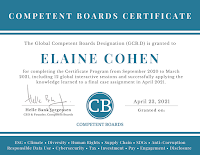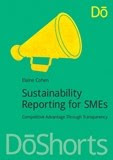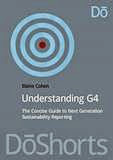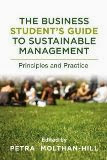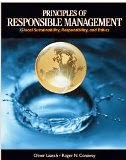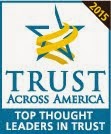I was intrigued to read Shiseido's Social Report. I came accross the fact that they had issued a report, and had a sudden surge of nostalgia caused by several years working in the cosmetic industry, time spent in Japan, and the reverence earned by shiseido as a master cosmetic innovator and developer, using the most expensive raw materials and producing the classiest and most predigious line of products. So how do they do on CSR, i asked myself, after the nostalgia has subsided.
Straight to website, download PDF.
Darn. It's in Japanese. Now why would that surprise me? Well, their CSR website is all in English. Couldnt they have been 無理がきく ? (that means willing to go the extra mile). (I hope!). And produce the report in English ? Wonder what proportion of Shiseido customers are not Japanese speakers? (I know a little Japanese, domo arigato). A quick trip to corporate data shows that 63% of their business is in Japan.
OK, let's take a quick look at their web. Straight to the gut. Stakeholder dialogue. Shiseido has an interesting model here. Once a year, it seems, they invite experts and hold a facilitated discussion which is fully transcripted on the website. This is a nice approach, interesting to hear what appears to be the unedited comments of stakeholders. I looked into how Shiseido dialogues with customers, and found quite a range of ways to sollicit customer feedback, including "chatterbox", where employees talk to customers in an on-line live chat enviromment. it's GREAT fun. Why ? Because it offers "The ability for participants to transform themselves into cute animated characters keeps the interview enjoyable." I think i would be a cute animated CSR consultant.
But the nice, and i think, rather unusual thing about this is that the site also gives examples of where Shiseido has modified products and packaging design as a result of consumer feedback. The value of dialogue proves itself once again.
Their report is a self declared GRI B. That self-declared thing again. Must do a post on that.
It's sort of assured - by one of the stakeholder panel participants - but there is no indication that this is anything more than an informed opinion rather than a full verification or assurance process.
The thing that strikes me most about the Shiseido web report is that it's a little like going back in time. Inside one of their nano-capsules. Their approach to CSR is really about doing good - making people feel happy because they can be beautiful by spending a lot of money on shiseido products and receiving expert advice on how to use them. Shiseido has a very benevolent approach, and works to provide products for all types of skin concerns and "irregulaties "etc. What i miss is any sense of materiality. What's material to Shiseido ? What about their role in the beauty industry which creates manipulated and distorted views of women in the name of beauty ? To what extent are they perpetuating myths about beautiful people to drive sales, that creates the sort of society where women feel they have to be stereotypically "beautiful" to be valued ? what about pricing ? What about animal testing ? What about manufacturing conditions?
And while we are on a feminist roll, Shiseido employes over 6400 female beauty consultants (and 6 males). 276 of a total of 1798 managers are female. 15%. Amazing really. The Company sells to women. Makes products for women. No way of knowing how many women are on the Board or in the executive suite. But wouldn't you have thought that there would be a few more capable women available to assume some leadership responsibility ?
Anyway, all in all, i can't help but feel a little positive towards Shiseido. (Is it that nostalgia again ?). their report seems an earnest attempt to reflect a basically solid csr position and a genuine attempt to do the right thing. Modern CSR would suggest they ought to be doing a little more soul-searching to review those areas which are more difficultly material, and also expand the scope and depth of their reporting .
For the time being, sayonara . Or, as they say in Japan, bai-bai.
Saturday, November 15, 2008
Saturday, November 1, 2008
Fast food or fast service at McDonalds ?
So why do you go to McDonalds. For food or fast service ?
McDonalds have released their new interactive digital virtual on-line hyperlinked fourth CSR report. The last was in 2006. Took them 9.5 months, they said, in an article in PR Week.
Now by now, you know that I am not a fan of digital formats. Give me a searchable, off-lineable, unhyperlinked PDF any day. So I was pleased to discover that there is a downloadable minireport which I immediately downloaded.
The first thing I liked about the McDonald's mini is the key performance indicators from 2004 – 2007. This gives PERSPECTIVE and shows progress over a 4-year period. That, after all, is what sustainability is all about, right? The long haul. The 24 page minireport is well-written and targeted at the consumer – descriptive, plain language, not much data but exactly the sort of thing I expect people will be interested to read. It does contain interesting insights, the "did you know" section in each chapter offers 4 or 5 core pieces of information ,like the fact that McDonalds have a chef! ("Most people are surprised to find that McDonalds have a chef!), the first green restaurant in Sweden was opened in 2000, Nutrition Information Initiative for informing the consumer of all nutritional data of foods, Rainforest Protection Policy etc. Producing a readable summary in this way I suspect will encourage lay readership. And in so doing, will assist in broadening overall awareness for sustainability issues. But, as a professional, my thirst for data was not quenched by a mini 24 pager.
So I went to the cr report site: I soon began to tire of the long scroll-downs and I don’t have time to watch the videos so imagine my joy when I discovered you can download the FULL report – 92 pages.
I like the McDonalds report. Their treatment of the Greenpeace onslaught where McDonalds admit they were "taken by surprise" and entered into dialogue with Greenpeace to develop sustainable solutions shows responsiveness and honesty in reporting. The section on employment experience is comprenehsive and shows good progress in development of the employment value proposition, something McDonalds has been criticized heavily for in the past.
The report was produced with guidance from CERES, it's GRI indexed but not assured. There is no declared reporting level, though this looks to me like a high B or an A.
McDonalds also takes care to note where the Company reports around the world which I believe is an important element for global businesses. Global reporting for local stakeholders doesn’t work. A global framework is fine, but multinationals must recognize that their impacts are different each national location around the globe, so McDonalds 9 local reporting locations is good news.
Actually, I am appalled to find that I haven’t found anything terribly critical to say about this report yet. So here is the thing. When I take my kids to McDonalds, it's because it’s a FAST option. Fast food, right ? I can't find anything in this report about customer service and the way McDonalds manages to ensure both food quality, variety and the safety of Happy Meals as well as doing it all fast, so that we don’t have to wait in line for eons. Nothing about the customer in-restaurant satisfaction. The report is heavily slanted to supply chain issues. But I guess, and probably agree, that these are the most material.
So all in all, well done to McDonalds for a great report, well formatted, readable, material, specific on goals and targets and actually, fairly optimistic. Wow, now I am sooo hungry!
McDonalds have released their new interactive digital virtual on-line hyperlinked fourth CSR report. The last was in 2006. Took them 9.5 months, they said, in an article in PR Week.
Now by now, you know that I am not a fan of digital formats. Give me a searchable, off-lineable, unhyperlinked PDF any day. So I was pleased to discover that there is a downloadable minireport which I immediately downloaded.
The first thing I liked about the McDonald's mini is the key performance indicators from 2004 – 2007. This gives PERSPECTIVE and shows progress over a 4-year period. That, after all, is what sustainability is all about, right? The long haul. The 24 page minireport is well-written and targeted at the consumer – descriptive, plain language, not much data but exactly the sort of thing I expect people will be interested to read. It does contain interesting insights, the "did you know" section in each chapter offers 4 or 5 core pieces of information ,like the fact that McDonalds have a chef! ("Most people are surprised to find that McDonalds have a chef!), the first green restaurant in Sweden was opened in 2000, Nutrition Information Initiative for informing the consumer of all nutritional data of foods, Rainforest Protection Policy etc. Producing a readable summary in this way I suspect will encourage lay readership. And in so doing, will assist in broadening overall awareness for sustainability issues. But, as a professional, my thirst for data was not quenched by a mini 24 pager.
So I went to the cr report site: I soon began to tire of the long scroll-downs and I don’t have time to watch the videos so imagine my joy when I discovered you can download the FULL report – 92 pages.
I like the McDonalds report. Their treatment of the Greenpeace onslaught where McDonalds admit they were "taken by surprise" and entered into dialogue with Greenpeace to develop sustainable solutions shows responsiveness and honesty in reporting. The section on employment experience is comprenehsive and shows good progress in development of the employment value proposition, something McDonalds has been criticized heavily for in the past.
The report was produced with guidance from CERES, it's GRI indexed but not assured. There is no declared reporting level, though this looks to me like a high B or an A.
McDonalds also takes care to note where the Company reports around the world which I believe is an important element for global businesses. Global reporting for local stakeholders doesn’t work. A global framework is fine, but multinationals must recognize that their impacts are different each national location around the globe, so McDonalds 9 local reporting locations is good news.
Actually, I am appalled to find that I haven’t found anything terribly critical to say about this report yet. So here is the thing. When I take my kids to McDonalds, it's because it’s a FAST option. Fast food, right ? I can't find anything in this report about customer service and the way McDonalds manages to ensure both food quality, variety and the safety of Happy Meals as well as doing it all fast, so that we don’t have to wait in line for eons. Nothing about the customer in-restaurant satisfaction. The report is heavily slanted to supply chain issues. But I guess, and probably agree, that these are the most material.
So all in all, well done to McDonalds for a great report, well formatted, readable, material, specific on goals and targets and actually, fairly optimistic. Wow, now I am sooo hungry!
Subscribe to:
Posts (Atom)



